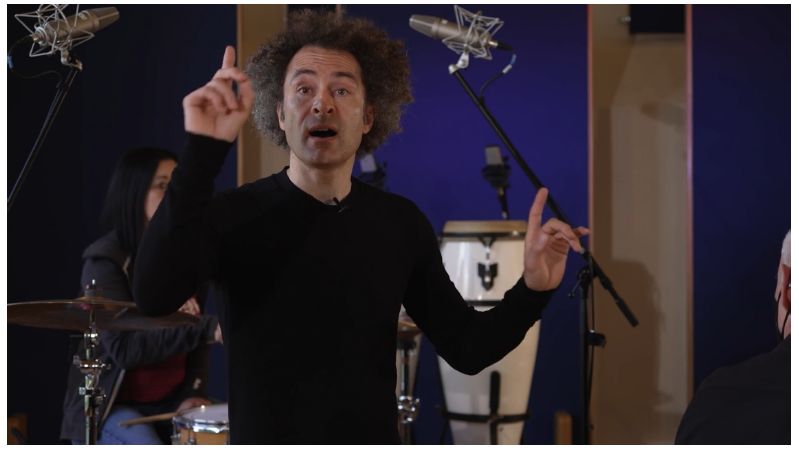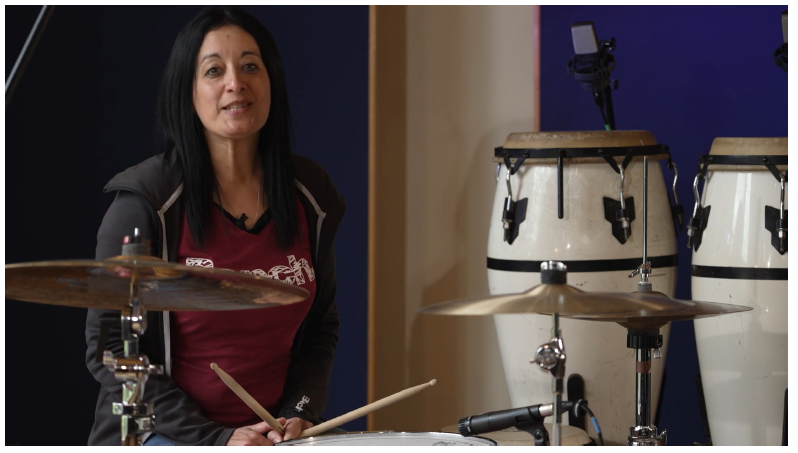
Hailed by The New York Times as ‘one of Britain's very best choirs’, Ex Cathedra has been producing concerts and participatory projects for over 50 years. In that time, the group has worked in over a thousand schools across the UK and beyond.
However, fine credentials do not always translate into a resource that can be used effectively, at a distance and without further support, by an overstretched and time-pressed teacher in a busy and challenging comprehensive. Can ChoirMaker, as a standalone resource, step up to the plate? I'm pleased to say it goes further and smashes the ball out of the park.
Designed to support singing in Year 7, ChoirMaker is a unique, high-quality resource, featuring diverse, world-class musicianship and modelling. It's 10 online chapters, each based on one song, introduce some great modern and traditional choral music while providing the tools needed to bring the material to life.
It does not claim to be a ‘boil in five minutes’ pedagogical panacea to meet all your curriculum needs. There are no box-ticking sessions or people laboriously reading out lesson objectives. Instead, it sticks to what it says on the tin – supporting singing. The guidance for developing choral practitioners is well thought out and, vitally, lends direct support to the students learning the material, which is where this product shines. It's concise, focussed and effective.
 Dan Ludford Thomas teaching conducting skills
Dan Ludford Thomas teaching conducting skills
Often overlooked in education materials, the quality of the musicianship, audio and video are absolutely top-drawer here; there are no General MIDI trumpets, nor hissy or muffed recordings. Instead, we see and hear high-quality musicianship, recording, mixing and mastering. There is a strong selection of original choral work, including material in a modern and popular vein. The music is accessible and relatively simple while never descending into cheesy or oversimplified. The songs are not too ‘rangey’ for new singers, nor too technically demanding for choirs just starting out. There is great use made of ‘partner songs’ or quodlibets sharing chord progressions – a highly effective way of introducing part-singing. A lullaby is included for soft, gentle singing, but it is not so childish as to put off the streetwise teen. The guidance is supportive but never patronising or too prescriptive, nor reliant on prior knowledge and experience of formal conducting techniques and methodologies. The guidance is precise for the needs of the work but also covers a broad range of skills, such as how to bring in groups, deal with anacruses, use gesture to support pitching, and even how to make our eyes welcoming.
For me, what really stands out about this resource are the student-centred videos to encourage independent study. This saves us music teachers from having to sing and record separate parts for our pupils to practise outside of class, and gives pupils the opportunity to practise their parts independently. In particular, the sections on improvisation and ‘mini’ composition are incredibly useful classroom activities and provide excellent ideas that can be applied across the curriculum.
 Simone Rebello discussing how to add percussion to performances
Simone Rebello discussing how to add percussion to performances
A small niggle: I sometimes couldn't see how the extension activities connected to the lesson theme; for example, the performance of Jerusalem as an extension activity for the lesson on ‘friendship’. Some might also wish for more work on developing notational understanding, music history and music theory, but for me that's a good thing: to Ex Cathedra's credit, ChoirMaker doesn't try to cover too much technical or historical information beyond what is needed to teach and sing the songs well.
The recent Ofsted annual review suggested that singing at KS3 was something that could be more frequent and much better. Hopefully, under the new NPME, we will see singing strategies creeping into more school and MAT development plans. ChoirMaker could have an immediate impact in supporting schools, trusts, teachers and students to lead KS3 choir sessions.
If you are running a choir, and especially if you are looking at starting one (including adult choirs), this is a must-have resource.
£100 per year (free for Birmingham schools for 2023–24)




